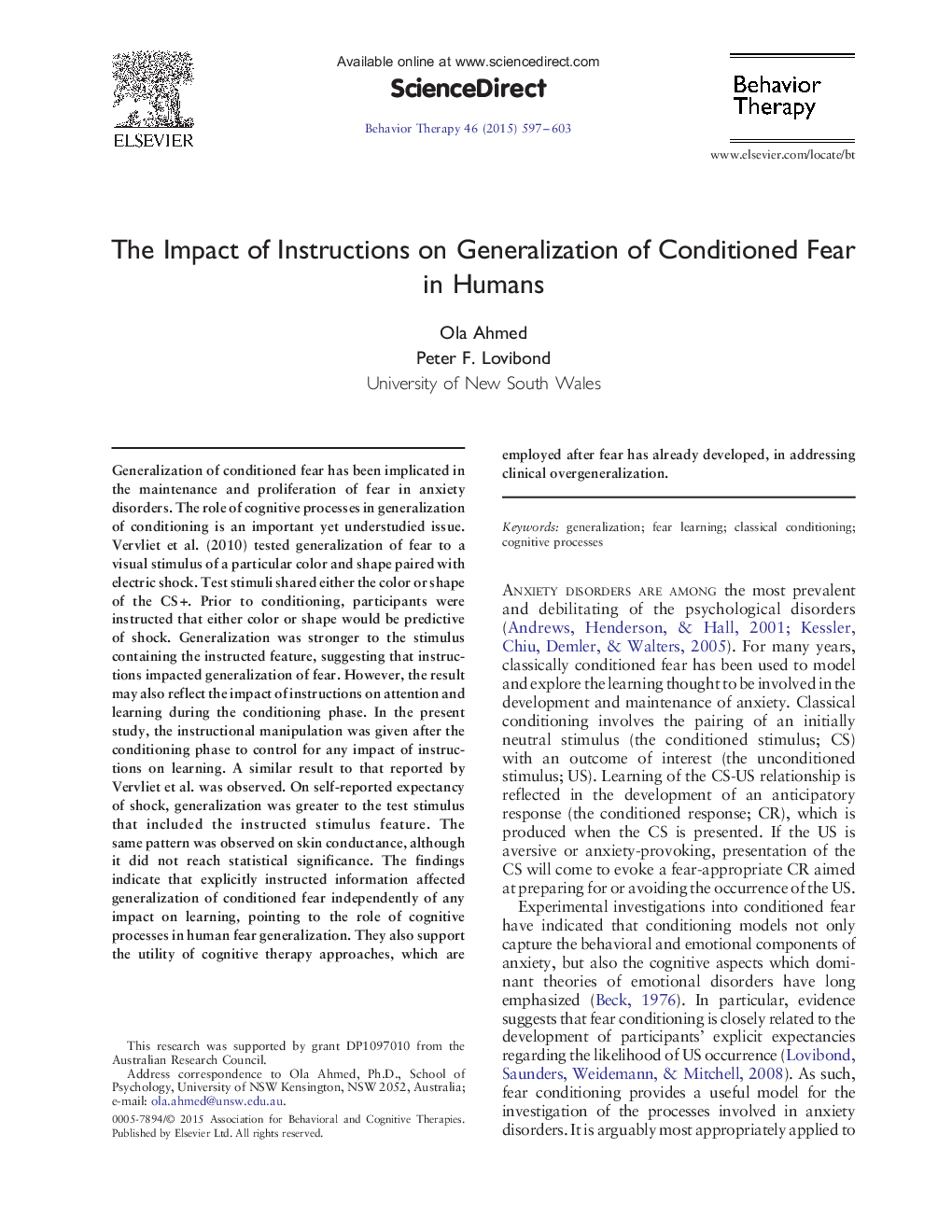| Article ID | Journal | Published Year | Pages | File Type |
|---|---|---|---|---|
| 901159 | Behavior Therapy | 2015 | 7 Pages |
•Fear responding developed rapidly to the stimulus which predicted an electric shock•Conditioned fear learning generalized more strongly to one of two novel stimuli•Fear generalized most to the instruction-relevant test stimulus•Instructions impacted generalization independently of any impact on conditioning
Generalization of conditioned fear has been implicated in the maintenance and proliferation of fear in anxiety disorders. The role of cognitive processes in generalization of conditioning is an important yet understudied issue. Vervliet et al. (2010) tested generalization of fear to a visual stimulus of a particular color and shape paired with electric shock. Test stimuli shared either the color or shape of the CS +. Prior to conditioning, participants were instructed that either color or shape would be predictive of shock. Generalization was stronger to the stimulus containing the instructed feature, suggesting that instructions impacted generalization of fear. However, the result may also reflect the impact of instructions on attention and learning during the conditioning phase. In the present study, the instructional manipulation was given after the conditioning phase to control for any impact of instructions on learning. A similar result to that reported by Vervliet et al. was observed. On self-reported expectancy of shock, generalization was greater to the test stimulus that included the instructed stimulus feature. The same pattern was observed on skin conductance, although it did not reach statistical significance. The findings indicate that explicitly instructed information affected generalization of conditioned fear independently of any impact on learning, pointing to the role of cognitive processes in human fear generalization. They also support the utility of cognitive therapy approaches, which are employed after fear has already developed, in addressing clinical overgeneralization.
